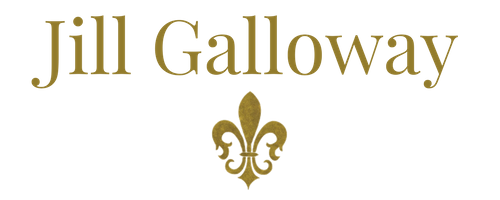Saving For Your First Home
/The latest stats show that the median Los Angeles home price is $525,000. Anyone within the sound of my keyboard knows that a house for $525,000 is like a unicorn - they don't exist. So lets use $1mm as an example. So how do you prepare to put that 20% down - a whopping $200,000? Finance professionals say the best options for “individuals who are trying to save for a home purchase...are advised to use conventional, low-risk, liquid methods for accumulating savings: Savings Accounts, CDs and Money Market Funds," said James Sprow, Director of Research at Blue Vault Partners. These three, along with Exchange Traded Funds, ETFs, are all great options for new homeowners- read below to see which method is best suited for you!
Fixed Income/Bond ETFs
Exchange Traded Funds, or ETFs, trade like stocks but are more liquid and have lower fees than a mutual fund. When you purchase an ETF, you are buying a share of a bond, making you eligible for a portion of the profits. ETFs experience price changes throughout the day as they are bought and sold. It's like the stock market but more stable.
Pro: ETFs can have very high interest rates and keeping money in an ETF for a few years can have a large return rate.
Con: A broker fee is incurred and ETFs are not guaranteed to preserve capital as they’re based on the stock market.
As ETFs fluctuate with the market, it is almost impossible to predict the growth of your investment with any guarantee.
High Yield Savings Accounts
A savings account is a simple and proven strategy even your Grandma would approve of. You can find a great high yield savings account at most banks, particularly online ones, which offer great rates (no overhead of a brick and mortar bank). These accounts allow you to earn more interest, with the safety of being FDIC insured, and is a common way to save for a down payment.
Pro: You can access your money at any time, and with a little research, you can find a great interest rate.
Con: These do not have as high an interest rate as a CD, so if you’re not planning on touching your money for a few years, there are usually more lucrative options.
At an average 1% Annual Percentage Yield, APY, contributing $500 per month to your account, it would take you 17 years to save enough for the down payment while using a high yield savings account. Don't start choosing your paint colors just yet!
Learn more about high yield savings accounts here.
Certificate of Deposit (CD)
CDs allow you to deposit a chunk of money into a savings account and lock in a rate of return for the length of the CD. CDs are available in terms ranging from 6 to 60 months, with higher interest rates available if you're willing to leave your money in for longer amounts of time. For CDs, patience is a virtue!
Pro: CDs offer great interest rates and help you reach your savings goals faster by using money you don’t immediately need.
Con: If you end up needing to withdraw your money out of a CD before the term is up, you will likely incur a penalty.
If you don’t continue to add money to a CD, it’s advised to invest a larger chunk of money. For a 5-year CD, the average APY is 2%. So, if you invest $5,000, in 5 years your money will increase to $5,520.
Find more info about CD investments here.
Money Market Mutual Fund
A money market mutual fund is an investment that earns interest for shareholders while maintaining a Net Asset Value (NAV) of $1 per share. Confused? Basically, they are short-term securities that are a very safe, low-return type of mutual funds. You won’t get much back on these accounts- they act as a holding place for your money before you decide to invest it.
Pro: Very safe with no chance of losing your money.
Con: Low return on your investment. You would be better off putting your money into a savings account with a higher interest rate.
Money Market accounts tend to have the same rates as savings accounts. Investing in an MMA will also take around 17 years to save enough for a down payment, saving $500.
If you'd like to learn more about money mutual funds, check this out.
OR
ROB A BANK. YOU WILL LIKELY GO TO JAIL AND YOU WILL IMMEDIATELY HAVE A “HOUSE”, NOT TO MENTION 3 SQUARES A DAY, HEALTH INSURANCE AND NO PROPERTY TAXES. ACTUALLY SOUNDS LIKE A GOOD RETIREMENT PLAN.
















